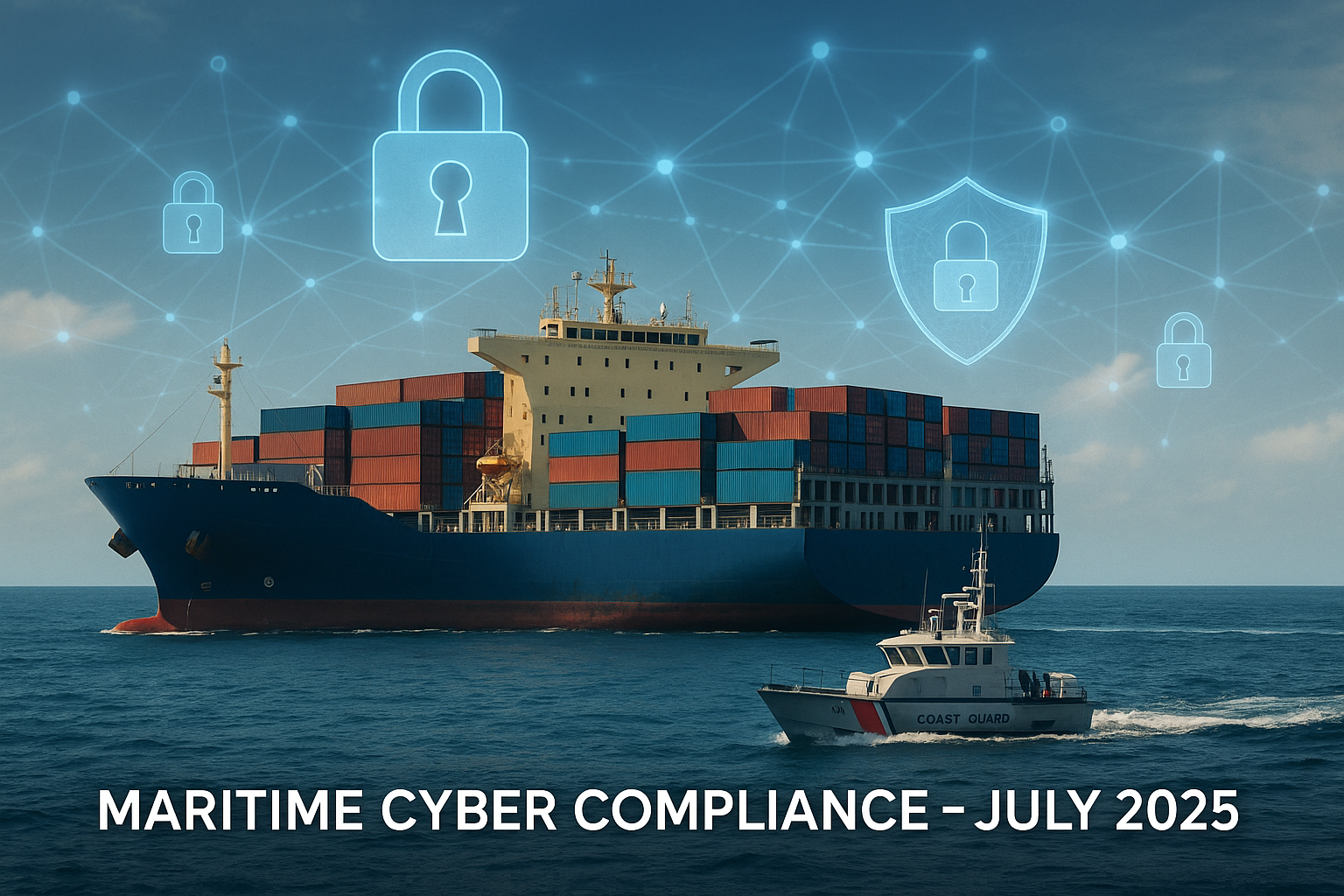Cybersecurity Compliance Isn’t Optional Anymore for Maritime
On July 16, 2025, a sweeping new U.S. Coast Guard rule takes effect—one that forces every maritime facility and vessel operator to take cybersecurity seriously or risk fines, delays, and operational shutdowns.
This isn’t just another guideline. It’s a legally binding mandate.
What’s Changing? A Final Rule with Teeth
The Coast Guard’s Final Rule on Cybersecurity in the Marine Transportation System (MTS) mandates that vessels and facilities must integrate cybersecurity into their Facility Security Plans (FSPs) or Vessel Security Plans (VSPs). That means:
- Cybersecurity assessments are no longer optional.
- Operators must address cyber vulnerabilities in operations.
- Failure to comply could lead to enforcement actions under 33 CFR Parts 101, 104, and 105.
Why This Rule Matters Now
The maritime industry has been a soft target for years. From port shutdowns due to ransomware (e.g., the 2017 Maersk breach that cost $300M) to GPS spoofing and AIS manipulation, cyber threats have moved from theory to daily risk.
This new regulation is a direct response to:
- Increasing reliance on Operational Technology (OT) and IT convergence.
- Escalating global cyberattacks targeting maritime supply chains.
- National security concerns about foreign exploitation of U.S. port infrastructure.
Key Risks for Non-Compliance
Failing to comply with the Final Rule opens the door to multiple risks:
- Regulatory Penalties: Fines and possible detainment of vessels.
- Operational Disruption: Required cyber incident reporting may trigger shutdowns.
- Reputational Damage: Disclosure of unaddressed risks can erode stakeholder trust.
- Cyber Breaches: OT vulnerabilities could be exploited to disable key systems like navigation, cargo management, or port access controls.
Steps to Prepare Now
Maritime operators should act before the July 16 deadline by taking these proactive steps:
- Conduct a Cybersecurity Risk Assessment aligned to Coast Guard expectations.
- Update Security Plans (FSPs or VSPs) to include cyber measures.
- Harden Operational Technology by segmenting networks and applying secure access controls.
- Train Personnel on cyber hygiene and phishing response protocols.
- Partner with Cybersecurity Experts experienced in maritime OT systems and compliance documentation.
Stay Afloat—Don’t Let Compliance Sink Your Operations
Cybersecurity compliance in maritime isn’t a checkbox anymore—it’s now operational survival. Saturn Partners has helped maritime operators assess, document, and remediate cybersecurity gaps in preparation for evolving regulatory requirements.
Don’t wait until your vessel is held at port.
Reach out today for a free consultation and ensure your operations are Coast Guard-ready.

